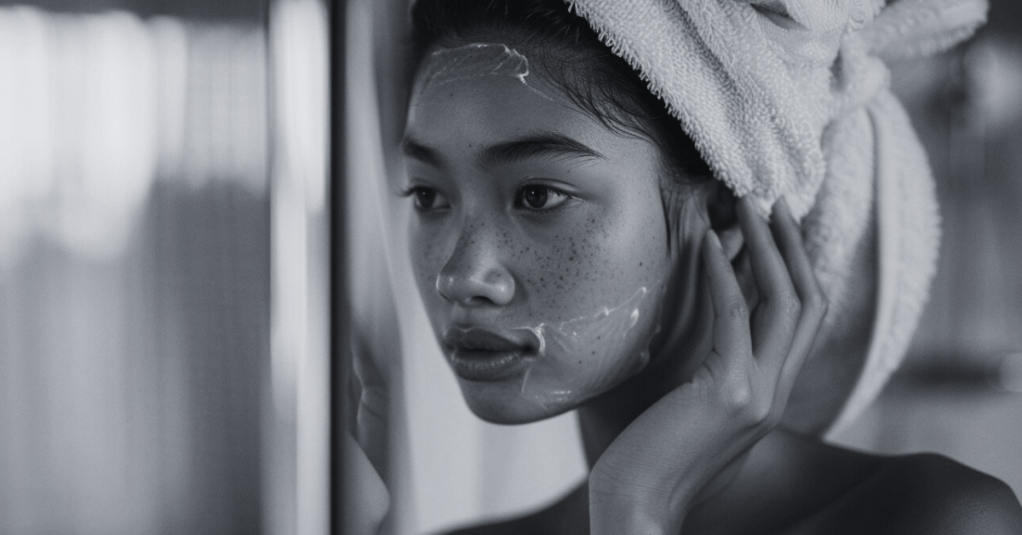by Cate Roque
Approx. reading time:
Every night, I apply a pea-sized amount of cleanser onto my face for about a minute. Almost immediately, the curl in my lashes disappear, the pink in my cheeks fade, and the cover-ups on my blemishes dissolve.
The makeup and skincare routines give me a sense of control. Sure, the world is on fire, but at least I look good. Plus points if I enter a Watsons store and the salesladies have nothing to say about how I look or what products they recommend.
Until now, though, I can’t help but feel like I’m still a “before” photo in one of those glow-up videos; there’s always something to improve on. And just when you think you’re looking your best, a new trend comes along and you have to adapt. The beauty industry reminds us of it almost everywhere. It gazes down on us from billboards, from our FYPs, even from the mirror.
Adhering to an accepted idea of “beauty” means being attractive and well put-together. It can get you free drinks and offer a way to avoid your titas’ unsolicited comments during family reunions. There is a certain sense of empowerment to altering our appearance to look more like this ideal. But is it really empowering? We do these things “for ourselves,” forgetting sometimes that masks never truly come off; they become internalized, layer upon layer of expectations piling up until our reflections become not quite us anymore.
Of course I want to be beautiful; don’t we all? Corporations know this and sell us the promise of fixing our flaws with a miracle product. Then the next one, and then the next one after that. As the standards evolve, so do our insecurities and the stuff we’re supposed to buy. There’s a price to subscribing to any idea of beauty—literally.
It might feel that we’re in control most of the time. But try as we might, no matter how much time and effort we spend in the name of beauty, the “solutions” for these insecurities, many of them manufactured, never end. It is exhausting to never be good enough. It is exhausting to chase a moving target, an impossible ideal.
And that exhaustion elicits in me an uncomfortable cognitive dissonance. For work, I assume the voice of different brands selling different products. Internally, I’m against a status quo that breaks me, while at the same time being part of an entire ecosystem that upholds it. Which brings me to the question: Is it possible to write an ad that gets the job done but doesn’t make people hate themselves?
Yes. I know that it is. I fondly recall the few beauty ads that have kept me at the edge of my seat. The ones I surprisingly didn’t click “skip ad” on. When I remember these, I think about the one theme they had in common: authenticity.
In a world of “shoulds,” the best beauty ads call for us to “be.” To be who we truly are, and to be seen as beautiful because of it. To be accepted. The better ones even go a step further by encouraging people to discover and to express their own idea of beauty—even and especially if it doesn’t conform to the mass-marketed ideal.
Sometimes, I think of the hair colors that are deemed “too much,” styles and subcultures that aren’t “flattering” or trendy at the moment, and going out into the world bare-faced. It can be uncomfortable because it’s different. But if it’s a genuine way to express who you really are, there’s bravery in that defiance. And always, there is beauty in bravery.
It’s a learning process for sure. There is beauty, after all, in reflecting on why we find the things we traditionally consider beautiful, well, beautiful. And maybe this is the first step in liberating ourselves from the pressure to perform.
Cate Roque is a writer, safe spaces advocate, and awardee of the Loyola Schools Awards for the Arts. Her work has appeared on Coffin Bell Journal and Heights, among other publications. She is also a top fan of the Journalixm Facebook Page.

